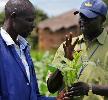Counting the contribution
A company the size of British American Tobacco (BAT) South Africa - the second largest JSE-listed company - clearly makes a significant contribution to the national economy. A new study has just been completed which highlights and disaggregates the effect that the country’s largest manufacturer and distributor of tobacco products has on the South African economy. Its economic impact throughout the broader value chain was also evaluated.
Economic impact assessments are not only useful instruments to measure the effect of a region, sector, company or capital project on national economic activity, they are regarded as critical tools to help design and appraise the effectiveness of new policies and regulations. Impact assessments have therefore become important tools for assessing the potential economic, social and environmental consequences of proposed regulations or government activities and their effects on society – the private sector, civil society and government.
Our findings show that last year alone, BAT South Africa’s economy-wide contribution amounted to R18.4 billion, or 0.52% to the country’s gross domestic product (GDP). The company generated R14.5 billion in tax revenues, representing close to 1.5% of the National Treasury’s total tax haul. To put this contribution into perspective: taxes raised directly from BAT South Africa’s operations could fund the construction of 90,260 low cost homes, pay the salaries for 87,233 high school teachers for a year, or pay for 3.6 million child support grants.
The company directly employed almost 2,200 people in 2015, including nearly 1,100 people in Gauteng, where its factory in Heidelberg is the largest employer. However, apart from this direct employment contribution, numerous producers were involved in supplying capital equipment, operational goods and services and raw materials to the company.
When all such multiplier effects are included, the company sustained over 72,000 jobs across the economy – equivalent to 0.64% of SA’s employment in 2015. The company also spent R6 billion on local suppliers, with around 42% of goods and services coming from majority black-owned businesses.
In the agricultural sector, which is critical in supplying raw materials to the company, more than 5,800 farming jobs were sustained as a result of buying over 90% of all tobacco leaf grown in South Africa. This had a significant impact in some of the most deprived parts of our rural economy.
Further down the value chain, over 25,000 jobs were sustained in thousands of spazas, house-shops, taverns and other outlets through the sale of BAT’s tobacco products – in many cases providing a significant source of income. Along the chain, thousands more jobs were sustained in the paper and wood pulp, business services, transportation and finance sectors.
Successive rounds of purchases by these suppliers and, in turn, their suppliers, create a chain of economic activity that involves not only the production of output, but also the remuneration of workers and tax contributions. This income is re-spent in the economy – the so-called induced impact. BAT South Africa’s economy-wide impact contributed a massive R34.3 billion to intermediate output in 2015.
In OECD countries, the use of impact assessments has grown significantly over the past few decades and they are widely acknowledged to be an important element of evidence-based policymaking. In South Africa, Cabinet decided on the need for a consistent assessment of the socio-economic impact of policy initiatives, legislation and regulations in February 2007. This approval followed a study commissioned by the Presidency and the National Treasury in response to concerns about the failure, in some cases, to understand the full costs of regulations and their impact on the economy.
Impact assessments can be invaluable tools for evaluating efficiencies and optimising spending and production, while a very important aspect is the consideration of policy alternatives to meet the desired objectives. In theory, this ensures that the most cost effective and positively impactful solution is selected, and that legislation is not blindly rushed through without a considered debate on what the consequences would be, or what alternatives are available. An important by-product of impact assessments is the prevention of unintended consequences.
Stakeholder consultation is of course central to impact assessments, similar to the entrenched nature of consultation in South African administrative law. This improves transparency and the quality of the evidence base by testing assumptions. It also provides the opportunity to review costs and benefits, and seeks additional data should it be needed.
Economic impact assessments are not ‘thumb-sucks’ or aspirational number-crunching exercises: they are put together with a great deal of work adopting the most up-to-date methodologies used throughout the world. If we are to make smart decisions about how we wish to be regulated, and about how to gain the most we can for the fiscus, they should be studied closely, and taken seriously.
Christo Luüs is an economist at Quantec Research. The research was commissioned by British American Tobacco (BAT) South Africa.

